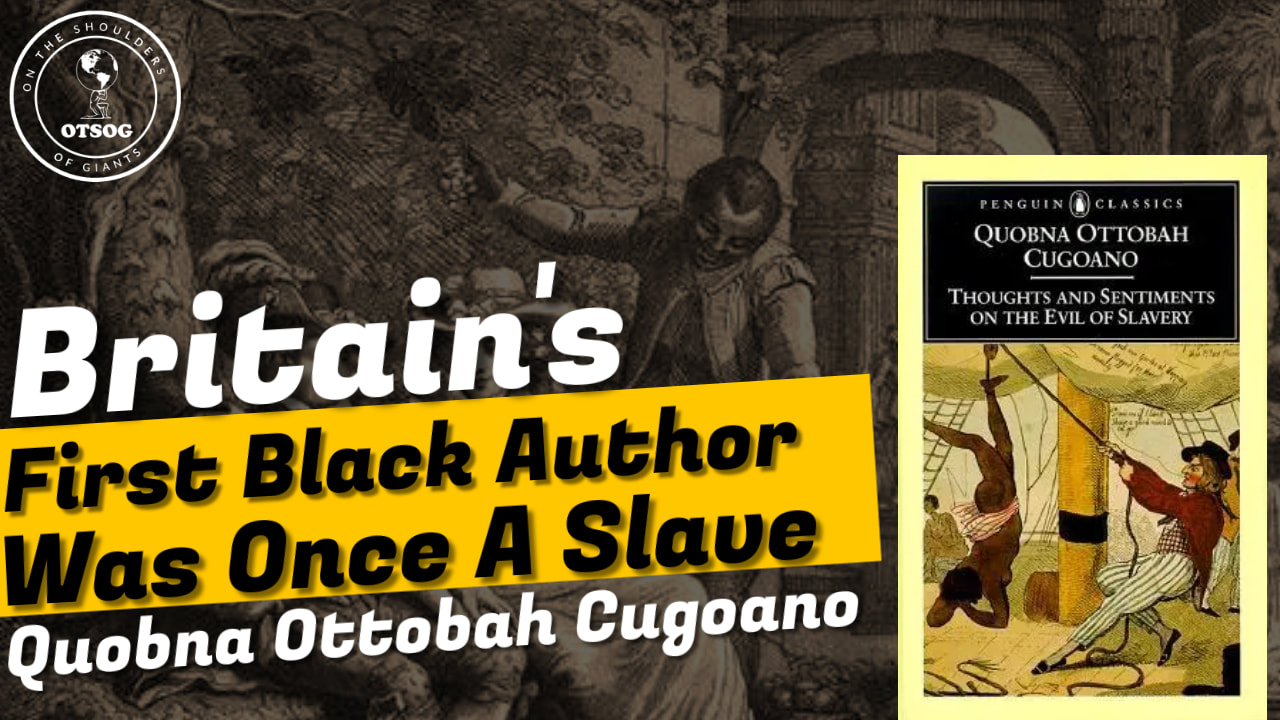|
We begin our story in the village of Ajumako located on the coast of present-day Ghana. Quobna Ottobah Cugoano was said to be born around the year 1757, not much is known of his early life. At the age of 13, Ottobah was kidnapped and sold to slave traders, along with a number of other boys and girls while playing in a field. Ottobah spoke about him and other children attempting to escape but were unable because guns were used to threaten their lives. The Europeans shipped Ottobah and other captives to the island of Grenada to work on a plantation. For two years, he worked plantations in Grenada and other islands of the Lesser Antilles. In 1772, Ottobah was sold to a well-known slave owner named Alexander Campbell and shipped to London, England. Campbell baptized Ottobah in 1773 and changed his name to John Stuart. It seemed to be a strategy behind Ottobah being baptized and converting to Christianity. Becoming a Christian helped him not only escape being sold again, but he eventually gained his freedom. I do not know exactly how he gained his freedom, but it is believed that his conversion to Christianity helped him gain his freedom. Because of a previous court ruling known as the Summerset Case, it became unlawful for a freedman to be sold back into slavery. As a free black man living in London, Ottobah dedicated himself to learning to read and write, skills he would use to advocate for his people. In 1784, Ottobah began working at the Schomberg House as a servant for Richard and Maria Cosway. During this time he began using his voice and his writings to campaign against the practice of slavery. Ottobah’s activism along with two other men helped to prevent a man named Harry Demane from being enslaved on an island in the Caribbean. Ottobah was making a name for himself as an advocate and activist against the enslavement of African people. He wrote several letters speaking out against slavery to the various London newspapers and influential men in London. In 1787, the once enslaved man published his first book titled, Thoughts and Sentiments on the Evil and Wicked Traffic of the Slavery and Commerce of the Human Species, Humbly Submitted to the Inhabitants of Great Britain. Ottobah wrote about his experience and the experience of other enslaved people to illustrate the horrors of slavery. His goal for the book was to inspire the abolition of slavery. Ottobah is known as the first black British author. His book is also considered a classic book and one of the greatest books of its era. While working and living at the Schomgerg House, Ottobah was exposed to prominent members of society, he was even exposed to British royalty. The Cosways would host popular parties that were attended by people such as Edmund Burke and the Prince of Wales. The Prince of Wales is one person Ottobah would often write to condemning slavery. It is believed that the Prince of Wales read the second edition of Ottobah’s book. In 1791, Ottobah wrote a letter describing how he will be traveling to promote his book. This letter was the last time anyone heard or saw anything from Ottobah. Many believe he may have died in 1791. A young boy was taken from his family and land, shipped to the Caribbean, then to London, was converted to Christianity, gained his freedom, then spent the rest of his life fighting to free African people from slavery. To Ottobah Cugoano, we proudly stand on your shoulders. J.A. Ward Click here to support the OTSOG book series. References: https://www.english-heritage.org.uk/visit/blue-plaques/ottobah-cugoano/ https://aaregistry.org/story/ottobah-cugoano-born/ https://www.blackhistorymonth.org.uk/article/section/bhm-firsts/ottobah-cugoano/
0 Comments
Leave a Reply. |
Details
Categories
All
Click Here to join our mailing list
|
Contact Us: |
Connect With Us |
Site powered by PIT Web Design


 RSS Feed
RSS Feed



